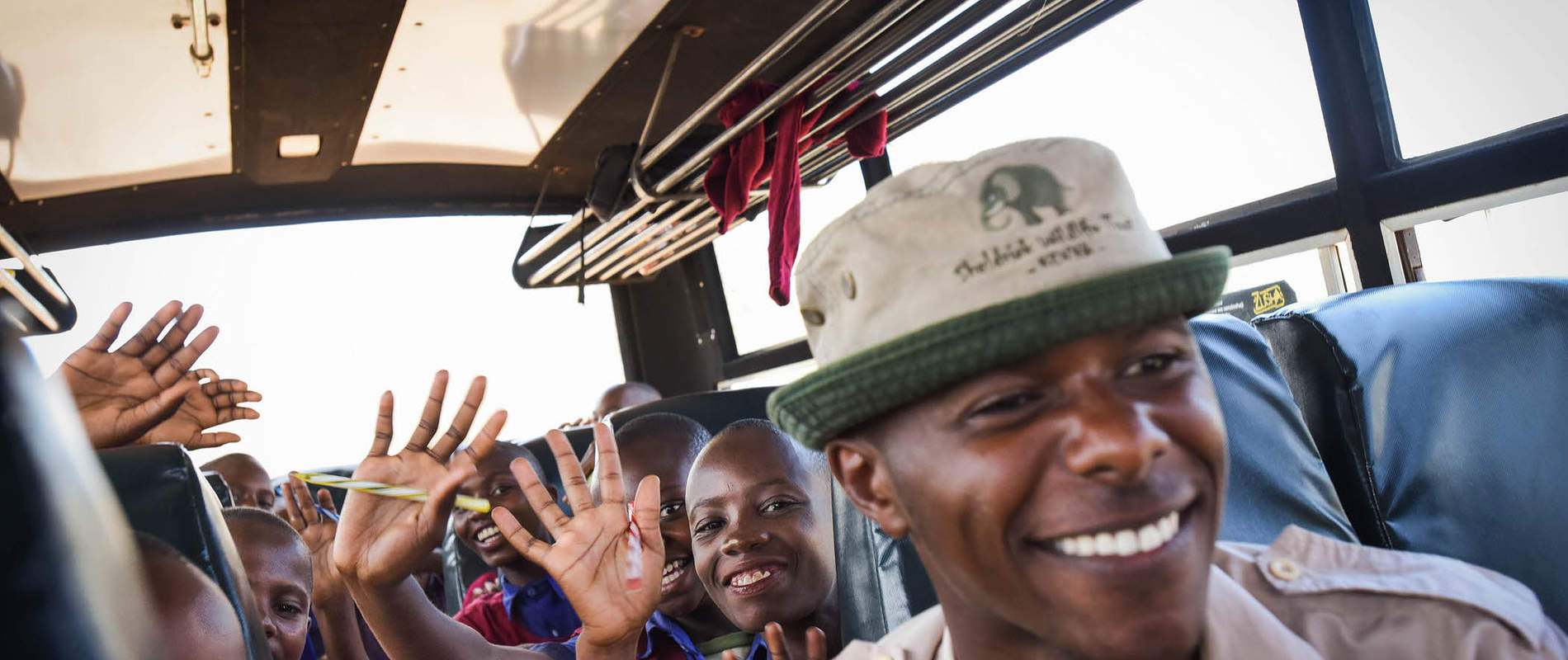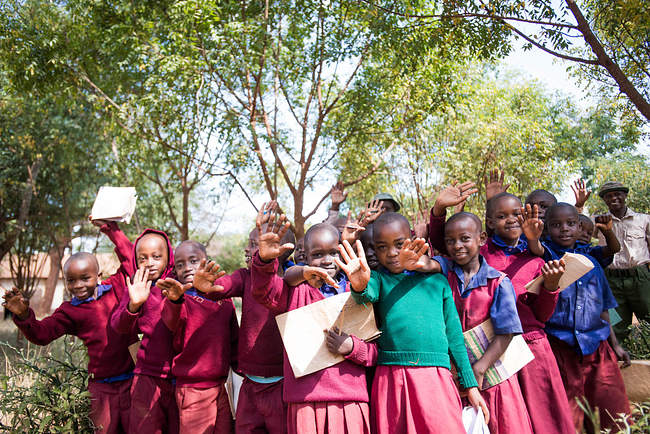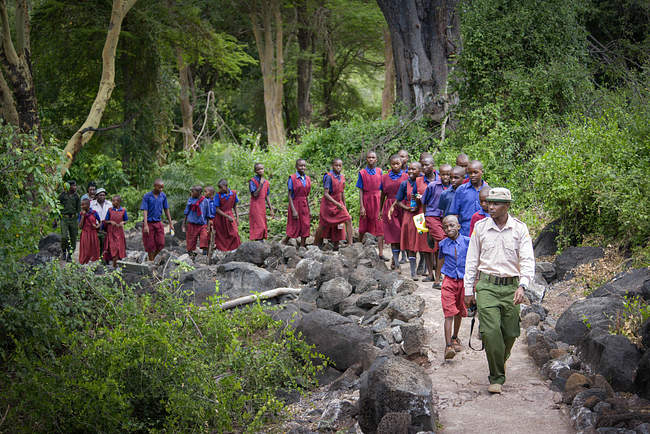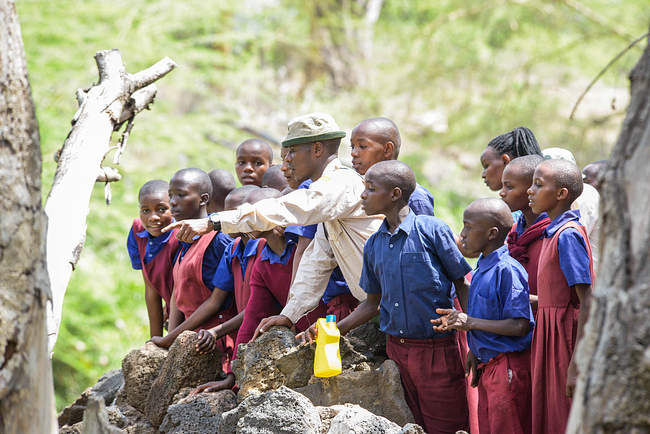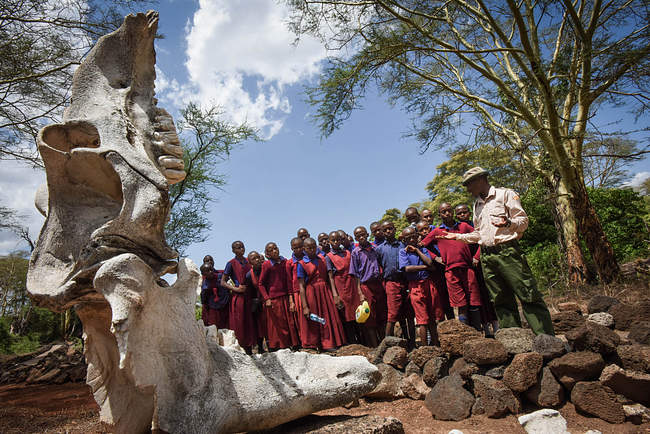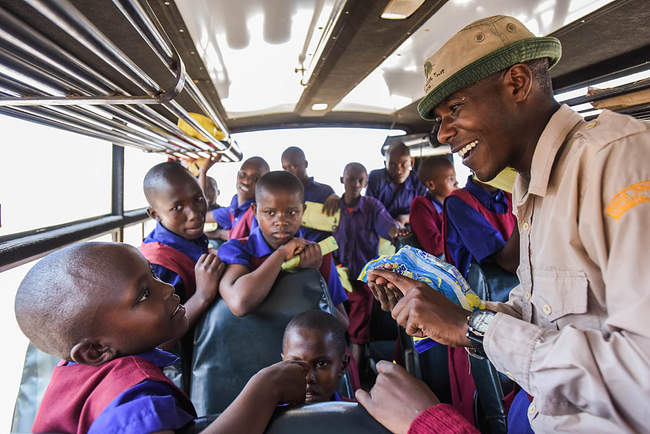It is so vitally important, and beneficial, that young people are exposed to wildlife and wild places in order to help nurture a passion for both, inspiring them to become champions for the natural world, and ensuring that there will be a place for wildlife in the future of our fast-developing world.

Nowhere is this notion more relevant than in places like Kenya where a rapidly growing population is coming into more and more frequent contact with nature. Kenyans are being forced daily to make tough decisions between the importance that they place on natural spaces and wildlife versus a daily struggle to survive. It is therefore extremely important to give children a reason to appreciate their environment and an opportunity to have a positive experience with nature, to help break negative misconceptions. Many students that live along the boundaries of National Parks have never even seen the incredible wildlife living on their doorstep. Along the boundaries of Tsavo, many children’s only experience with nature has been the devastating impact of human-wildlife conflict, particularly elephants and other herbivores destroying crops.
We take great pride in our Sheldrick Wildlife Trust (SWT) Community Outreach program, as we enable and engage huge numbers of school children in outreach and field trips almost every month throughout the year, visiting the National Parks that make up the Tsavo Conservation Area. Depending on the area the school is located in, will determine where a full day’s excursion in the SWT’s custom built bus will take place within the Tsavo ecosystem. Sometimes it is Tsavo East National Park, either in the Northern Area or the Southern Area, or often Tsavo West National Park with its picturesque beauty, wildlife and many geological points of interest.
Each field trip day consists of 25-26 students, a couple of their teachers as well as Samuel our SWT Community Officer and Dickson the driver. Both are experienced and highly motivated teacher/guides who never fail to bring the adventure to life with a day full of fun and laughter, with informative information imparted throughout.
It is so inspiring and encouraging to witness the extraordinary enthusiasm these field trips are met with by the students. Each student is keen to learn and eagerly fills out their SWT information and quiz questionnaires, quick to show off all that they have learnt throughout their day in the bush. The day starts early, with excited children piling into the bus before setting off for the nearest Park entrance. Once in the Park, the children are treated to their first game drive ever, many of them seeing animals that they have only read about in the classroom or heard about from their parents. For those visiting Tsavo East, they also get the incredible opportunity to visit our orphaned elephants that are in the process of being reintegrated into the wild. Witnessing peaceful, fun elephants at play is a mind-blowing experience for these children, many of whom have only ever heard stories about vicious, marauding elephants bent on destruction.
Those students who visit Tsavo West National Park are able to witness one of the most recent lava flows in Kenya as well as the ever-magical Mzima Springs, which issues crystal clear water that has been filtered over 3 years through columns of volcanic rock in the Chyulu Hills. Mzima is a wonderful experience for the children, offering spectacular underwater views – thanks to a glass observatory – of hippos, crocodiles and schools of several species of fish. The spring is also home to all manner of birds and visiting wildlife.

Aside from driving within the Park and enjoying the wildlife that they come across, they are able to stop at these points of interest and stretch their legs, learn more about each place and have that all important tangible experience which will stay with them forever. After more than 25 years we have been able to provide this treat to many hundreds of school children, and have had feedback from those that are now adults, with careers in conservation, who share with us that their passion and appreciation for the natural world first began with a SWT funded and hosted field trip.
